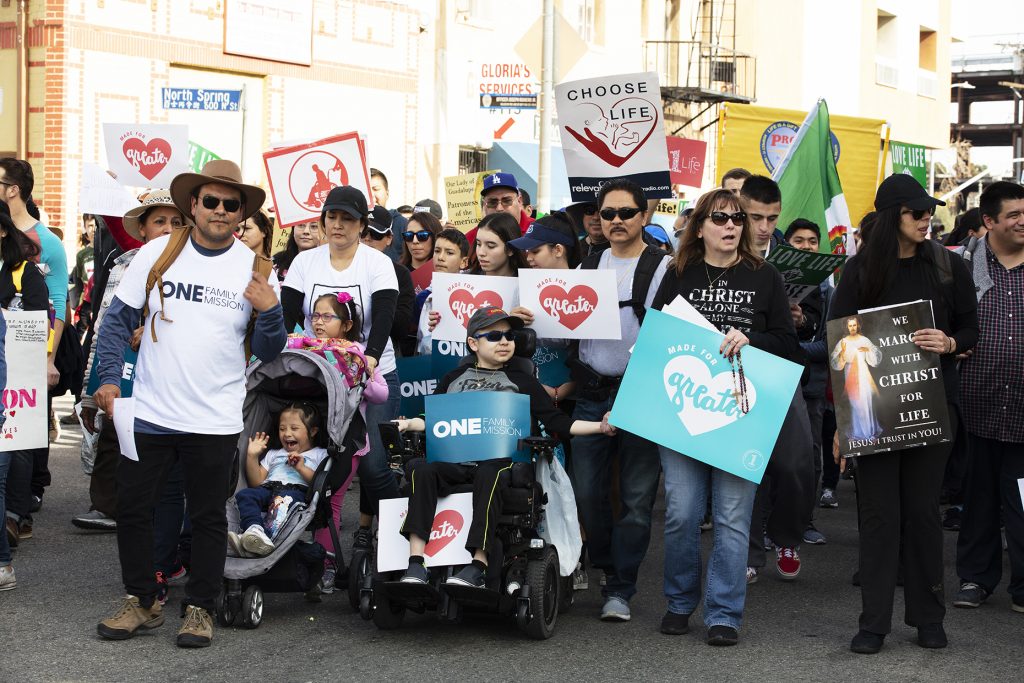There is a real possibility of abortion lawmaking in the U.S. “returning to the states” this year should the Supreme Court overrule Roe v. Wade in its Dobbs v. Jackson Women’s Health Organization decision. But what does this phrase mean? And what might such a future look like when states can (once again) decide if, when, and under what circumstances legal abortion is permissible — if at all?
The first thing to understand is the interplay of state and federal abortion law. Before 1973, when Roe was issued, every state could determine its own abortion law. But the U.S. Supreme Court held that the U.S. Constitution’s 14th Amendment included a woman’s right to seek abortion throughout nine months of pregnancy. Even in the last three months, states have since been compelled to permit “health abortions,” which can invoke a woman’s physical, emotional, psychological, or familial well-being — even her age.
The federal Constitution reigns supreme over state law. But if, as many court observers expect, Roe is overturned — along with the 1992 Planned Parenthood v. Casey Supreme Court decision that reaffirmed it — then abortion will no longer have federal constitutional protection, and states can protect unborn children under their authority to make laws affecting residents’ “health, safety, and welfare.”
If abortion policy indeed “returns to the states,” a few key tasks await our country’s pro-life movement.
There is already an urgent need to increase the quantity and visibility of assistance to pregnant women in need — no one doubts that. There are thousands of agencies spread across all 50 states doing this already, but more will be needed. In this work, pro-lifers cannot be shy about insisting that government and private groups who claim to care about women and children step up, too. They should call an “abortion first” version of feminism not only a lie, but the cheap way out. A world without Roe is one in which “pro-choice” organizations will need to put their money where their slogan is.
Still, we know this is not enough. Material and emotional aid is necessary, but usually not enough to overcome the pressures of our culture and the desperate circumstances women face. No one expects women to base momentous decisions about mothering primarily upon the availability of even years of free or subsidized stuff.
Instead, they will ask themselves whether their circumstances are conducive to motherhood in a culture that takes a schizophrenic stance toward it. Mothering is both valorized as generous and socially important, and feared as the graveyard of time, money, freedom and self-realization.
Only a shelf of books could treat this paradox, but here are a few preliminary thoughts.
In recent years, we have seen the pro-life movement — including the Catholic Church — look more to mothers as prominent thinkers and leaders, and as frank and credible witness to both the incomparable joys and difficulties of motherhood. That needs to continue.
Second, we need to make the pro-life case for private employers to provide paid leave, as well as job security and flexibility to mothers and fathers. Regardless of where we fall on the political spectrum, we’ll need to be prepared to respond to the arguments against such policies.
Third — and here’s maybe the toughest part — we need to be honest with ourselves: So long as unmarried couples regularly conceive babies in situations indifferent or hostile to marriage and parenting, there will be a high demand for abortion. Consequently, any post-Roe strategy failing to speak to reproductive justice for children — i.e., to conceiving them in circumstances disposed to their birth and care — is insufficient.
This strategy requires discussing nonmarital sex. It is more promising than you might guess. Recent data shows that more young Americans — especially if religious — are willing to wait longer and have fewer sexual partners. And a “reproductive justice for children” argument — which I fully detail in my 2018 book “Putting Children’s Interests First in U.S. Family Law” — has not yet been expertly aired.
Finally, what about post-Dobbs state laws directly concerning abortion?
In states hellbent on legalizing all abortions, it is still necessary to persistently make an attractive case for life. Pro-lifers must emphasize the common humanity of the unborn and demand cooperation in the work of taking care of pregnant women. If we do that, there will be less tolerance for the hypocrisy of supporting legal abortion, while simultaneously claiming to value equality, justice, and care for the vulnerable.
In states where it is possible to protect unborn life through legislation, the pro-life movement should go for broke. This will require cooperation among pro-life groups, across the aisle, and without fussing over who gets the credit. Some states may need money and expertise from others. A common fund, collected and administered by a central source, should be set up to assist states in need and on the front lines of the national struggle.
We can expect having to make peace with incremental progress: by this I mean settling sometimes for laws that do good things while not blessing bad things or becoming a stopping point versus a steppingstone respecting greater progress still.
I have no crystal ball regarding how often our efforts will succeed or fail. But I have both empirically reasonable and Christian hope that our grassroots mobilizing genius will not desert us. It has brought us to this day and will carry us onward.

